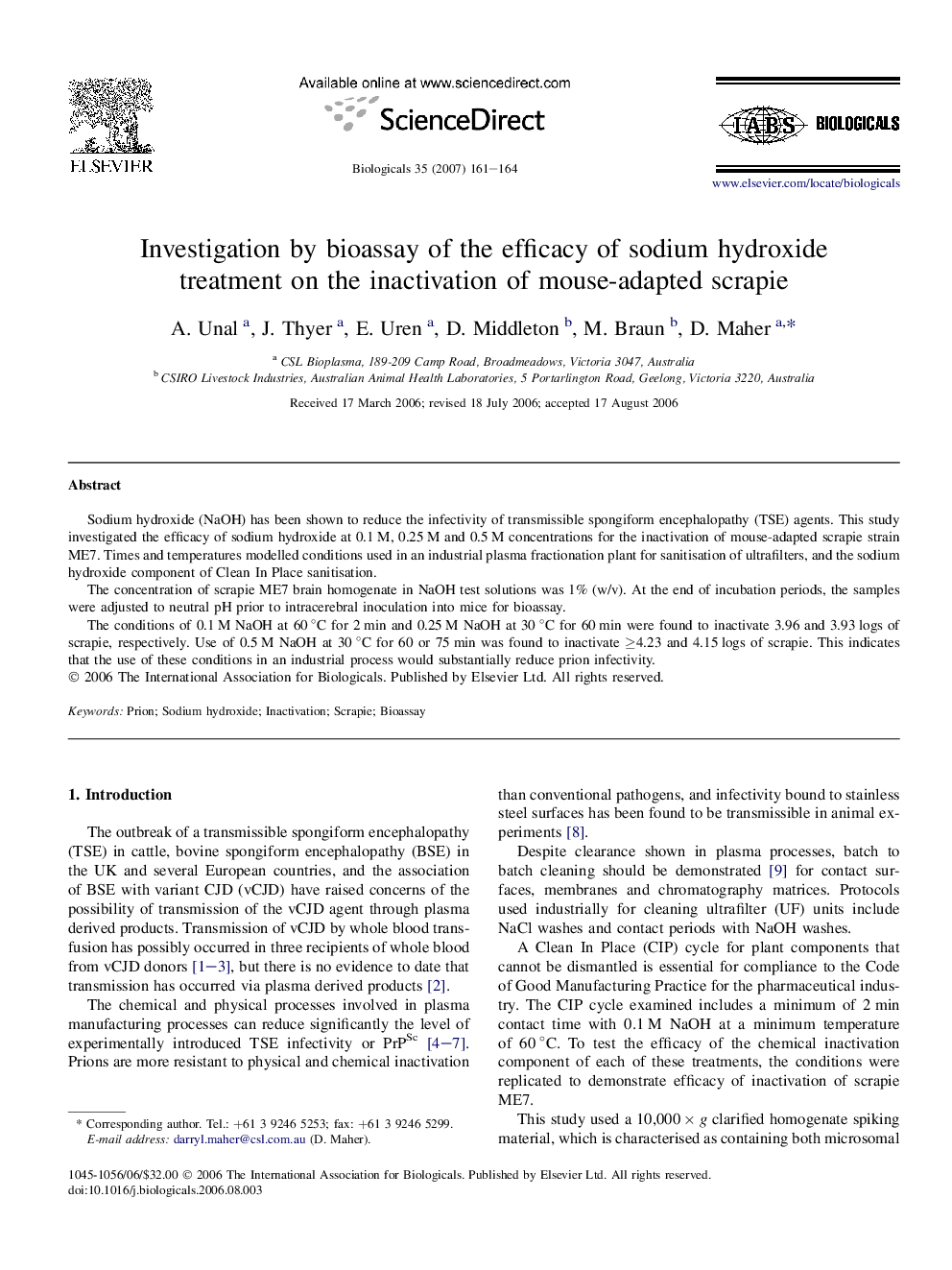| Article ID | Journal | Published Year | Pages | File Type |
|---|---|---|---|---|
| 2034408 | Biologicals | 2007 | 4 Pages |
Sodium hydroxide (NaOH) has been shown to reduce the infectivity of transmissible spongiform encephalopathy (TSE) agents. This study investigated the efficacy of sodium hydroxide at 0.1 M, 0.25 M and 0.5 M concentrations for the inactivation of mouse-adapted scrapie strain ME7. Times and temperatures modelled conditions used in an industrial plasma fractionation plant for sanitisation of ultrafilters, and the sodium hydroxide component of Clean In Place sanitisation.The concentration of scrapie ME7 brain homogenate in NaOH test solutions was 1% (w/v). At the end of incubation periods, the samples were adjusted to neutral pH prior to intracerebral inoculation into mice for bioassay.The conditions of 0.1 M NaOH at 60 °C for 2 min and 0.25 M NaOH at 30 °C for 60 min were found to inactivate 3.96 and 3.93 logs of scrapie, respectively. Use of 0.5 M NaOH at 30 °C for 60 or 75 min was found to inactivate ≥4.23 and 4.15 logs of scrapie. This indicates that the use of these conditions in an industrial process would substantially reduce prion infectivity.
